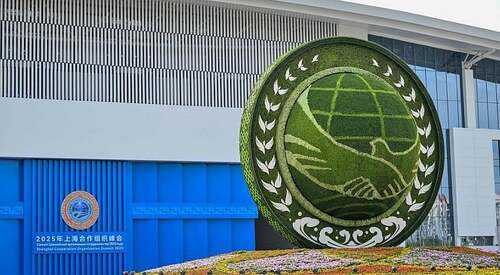
Tianjin | Chinese Foreign Minister Wang Yi on Monday announced that the Shanghai Cooperation Organisation (SCO) member states have decided to set up a Development Bank to increase the efficiency and social development of the region.
The approval to set up the bank, a Chinese proposal, came after 10 years of deliberations among the member countries, Wang said.
He added that the new bank will increase the efficiency and social development of the region. He, however, did not indicate any timeline to set up the bank.
The SCO will launch this important process, and there will be one more multilateral platform in the EuroAsian region, he said.
It is a good thing to celebrate not only for the member states but also for our region, Wang said.
Chinese President Xi Jinping, in his inaugural address earlier, urged SCO member states to accelerate the creation of a development bank, considering the growing appeal of the 10-nation bloc.
China had been pushing the grouping to set up a development bank on the lines of the New Development Bank (NDB) of the BRICS and the Asian Investment Infrastructure Bank (AIIB), in which India is the second largest shareholder.
Both banks, based in China, which were initially regarded as competitors to the IMF, World Bank and the Asian Development Bank (ADB), are now working with them with a co-financing pattern.
Wang said SCO has also approved the admission of Lao as a new SCO partner.
Also, the summit has decided to merge the observer states and dialogue partners into one unified state as the SCO partner. This is aimed at improving the efficiency of the organisation, he said.
Founded in 2001 in Shanghai, the SCO now includes Russia, Kazakhstan, Kyrgyzstan, China, Tajikistan, Uzbekistan, India, Pakistan, Iran and Belarus. Afghanistan and Mongolia are observer states, and 14 other countries serve as dialogue partners.
The SCO has an extended family of 27, Wang said.
In another development, Pakistan and Armenia have agreed to establish diplomatic relations, shedding their differences, Wang said.
Wang said the leaders witnessed the unveiling of the four security centres - the SCO universal centre for countering security challenges and threats, the information security centre, the centre combating transnational crimes, and the SCO anti-drug centre.
Terming the summit under the Chinese Presidency as a milestone and highly successful, Wang said that major progress has been made in SCO security cooperation.
He said that three cooperation centres will be set up for China-SCO cooperation in energy, green industry and the digital economy.
The SCO has grown into the world's largest regional organisation, with the participation of 26 countries, cooperation covering more than 50 areas, and a combined economic output of nearly USD 30 trillion, Xi said in his inaugural address of the 25th summit here attended by Prime Minister Narendra Modi and Russian President Vladimir Putin, among others.
SCO's "international influence and appeal are increasing day by day," Xi told the gathering of 20 foreign leaders who converged here to take part in the SCO Plus summit, which is the largest held by the grouping so far.
Xi spoke twice at the SCO Summit and later addressed the SCO Plus summit, where he announced more initiatives from China to benefit the member states.
On the political and strategic challenges faced by SCO, Xi said the member states are "all friends and partners."
They should respect their differences, maintain strategic communication, build up consensus, and strengthen solidarity and collaboration, he added.
Speaking at the SCO Plus summit, Xi proposed a Global Governance Initiative (GGI) in addition to his previous initiatives, the Global Development Initiative (GDI), the Global Security Initiative (GSI) and the Global Cultural Initiative (GCI), which became part of China's foreign policy initiatives.
Xi said the member states should leverage the strengths of their mega-sized markets and economic complementarity between them, and improve trade and investment facilitation.
He expected cooperation to be enhanced in areas such as energy, infrastructure, green industry, digital economy, sci-tech innovation and artificial intelligence.
He said China plans to implement 100 small and beautiful livelihood projects in member states with such need and announced RMB two billion (USD 280 million) funding and additional RMB 10 billion (USD 1.3 billion) in loans to the member banks of the SCO Interbank Consortium over the next three years.
Starting from next year, China will double the current number of SCO-specific scholarships and launch an SCO innovative PhD program to jointly train high-calibre talent in academic as well as scientific and technological research.
In the next five years, China will establish 10 Luban Workshops in SCO member states and provide 10,000 human resources training opportunities.
China is ready to build with all sides the artificial intelligence (AI) application cooperation centre, and share the dividends of progress in AI, he said.